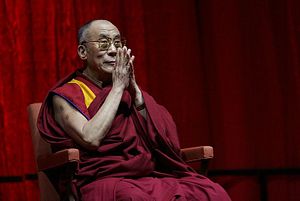Last week, the Chinese Ministry of Civil Affairs announced that it had released standardized names for six places in Arunachal Pradesh, an Indian-administered territory that is claimed nearly in its entirety by China. The Chinese move came shortly after the Dalai Lama, the spiritual leader of Tibet who lives in exile in India, visited the area. Specifically, the Dalai Lama visited the town of Tawang, where he first traveled in 1959 when he fled China.
Though India and China have made little progress toward resolving their territorial disputes in recent years, the issue had largely been shelved and pushed down the bilateral agenda as the two sides sought to cooperate on other issues. Recently, however, following China’s successful attempts to block India’s accession to the Nuclear Suppliers Group and Beijing’s decision to place a hold on the designation of Jaish-e-Mohammed chief Masood Azhar as a terrorist at the United Nations, New Delhi has taken a different approach to these issues. India claims that the Dalai Lama’s visit should draw no attention as the Tibetan leader regularly moves around within the country and Arunachal Pradesh is considered to be Indian sovereignty territory. However, New Delhi no doubt knows that the sensitivity of the Dalai Lama visiting Tibet would draw a Chinese reaction.
Speaking on Wednesday, Chinese Foreign Ministry Spokesperson Lu Kang addressed the latest move by the Chinese Ministry of Civil Affairs, noting that the release of standardized names was nothing more than “competent authorities in charge of managing China’s geographical names … exercising their lawful rights.” He added, “These names reflect from another angle that China’s territorial claim over South Tibet is supported by clear evidence in terms of history, culture, and administration.”
Beijing has claimed historical dominion over what it calls South Tibet in the past; moreover, the foreign ministry’s evocation of historical claims echoes China’s justification of its claims in the East and South China Seas as well. Lu further forcefully clarified Beijing’s usual position on the Dalai Lama’s activities in India: “[The] Chinese government firmly objects to the Indian government allowing the 14th Dalai Lama to carry out anti-China separatist activities in disputed eastern section of the China-India boundary.”
China additionally reacted to the Dalai Lama’s planned visit by summoning the Indian ambassador in Beijing. As analysts have noted, as the Dalai Lama grows older, Beijing is increasingly sensitive on the question of the Tibetan spiritual leader’s successor.
































